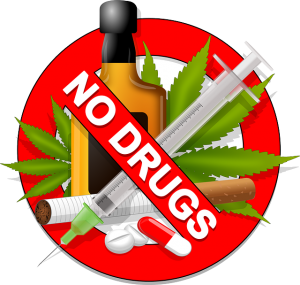There are five main classifications for drugs in the United States. Chemicals utilized to manufacture these drugs also fall into five classes. However, the groups of drugs do not designate the salts, isomers, salts of isomers, esters, ethers, and offshoots of any listed substances, which can also fall into their own schedules. The DEA is the organization in charge of deciding which category each substance falls into.
The classifications are divided based upon suitable medical use of them as well as by the extent of possible abuse and dependency. While Schedule I means that the drug has the most chance of abuse and dependency, Schedule V substances exhibit the least chance of misuse and addiction. Schedule II follows Schedule I as the most dangerous, then Schedule III, and Schedule IV trails after. It is important to know that criminal legal ramifications can occur, regardless of the schedule of the drug.
Common Drugs and Their Scheduled Classifications
Schedule I drugs have absolutely no medically-

Next up are Schedule II drugs. These substances have an extreme chance of psychological and physical dependency when used. Cocaine and substances with less tha
Moderate-to-low addiction and abuse potential substances fall under Schedule III. Tylenol with codeine and other drugs with less than 90 milligrams of codeine per dose are Schedule III substances. Other examples include ketamine, testosterone, and anabolic steroids.
Schedule IV drugs have low abuse and dependency hazards. Xanax and Tramadol are classified as Schedule IV, as well as Soma, Valium, Darvon, and Darvocet. Some other examples include Talwin, Ativan, and Ambien.
Rounding out the bottom are the Schedule V drugs. These substances have the lowest possibility for abuse and dependency of all scheduled drugs. Typically, they are utilized for antidiarrheal, antitussive, and analgesic reasons. Robitussin AC with less than 200 milligrams of codeine per dose falls under this grouping. Lomotil, Motofen, Lyrica, and Parepectolin also fall under this category.
Even though substances are partially classified by the possibility of abuse and dependency, this does not mean that you cannot become addicted or misuse substances classified as Schedule V. It is possible to overdo over-the-counter medications, such as melatonin. If you notice that you are struggling with an addiction, it is important to seek support and professional help.
What Options Do I Have for Professional Help in Burns, Tennessee?
You can call Discovery Place at 1-800-725-0922 any time of day, any day of the week. We are an alternative treatment center that offers long term and 30-day programs, a continuing care program, and a family matters workshop. Call us today to get help quitting cannabis, opioids, alcohol, or other addictive substances.

